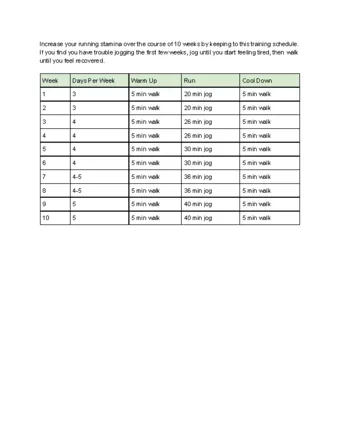How to Avoid Injury in Marathon Training
To avoid injury in marathon training, focus on proper warm-ups and cool-downs. Incorporate strength training to build resilience.
Training for a marathon is a rigorous process that puts a lot of strain on your body. Avoiding injury is crucial for a successful training cycle and race day performance. By implementing specific strategies and techniques, you can minimize the risk of getting injured during your marathon training.
We will explore some practical tips and best practices to help you stay injury-free while preparing for a marathon. From proper running form to adequate rest and recovery, these key principles will guide you towards a safe and effective marathon training experience. Let’s delve into the essential strategies for injury prevention in marathon training.
Building A Strong Foundation
When it comes to marathon training, building a strong foundation is crucial to avoid injury and improve performance. By focusing on areas such as strength training and cross-training, you can minimize the risk of getting sidelined by injuries that could potentially derail your training and race day goals. In this article, we will explore two key aspects of building a strong foundation – the importance of strength training and incorporating cross-training.
Importance Of Strength Training
Strength training is a pivotal component of any marathon training program. Not only does it help prevent injuries by improving muscle imbalances, but it also enhances performance and endurance. By incorporating strength training exercises into your routine, you can strengthen the muscles that support your running, such as your core, glutes, and legs.
When including strength training in your program, it’s important to focus on exercises that target key running muscles. These exercises can help build the necessary strength and stability to tackle the demands of long-distance running. Squats, lunges, deadlifts, and planks are just a few examples of strength exercises that can greatly benefit marathon runners.
Incorporating Cross-training
Cross-training is another essential element in building a strong foundation for marathon training. Engaging in activities other than running not only helps prevent overuse injuries but also allows you to develop overall fitness and agility. It provides a break from the repetitive impact of running while targeting different muscle groups.
There are numerous cross-training options available, such as swimming, cycling, yoga, and strength classes. Incorporating these activities into your training plan not only reduces the risk of injury but also enhances overall fitness, flexibility, and mental focus. The key is to choose activities that complement running and provide a well-rounded workout.
By building a strong foundation through strength training and cross-training, you can mitigate the risk of injury while improving your performance in marathon training. Remember to prioritize proper form, gradually increase intensity, and listen to your body to avoid overexertion. With a solid foundation, you’ll be on your way to a successful and injury-free marathon training journey.

Credit: compedgept.com
Proper Running Technique
Understanding Footstrike
Maintaining Good Posture
Effective Recovery Strategies
To avoid injury during marathon training, it’s crucial to prioritize recovery strategies. Incorporating rest days, proper nutrition, and adequate sleep can help prevent overuse injuries and improve overall performance. Implementing cross-training and regular stretching can also aid in maintaining muscle flexibility and strength, reducing the risk of injury.
Importance Of Rest
Rest is crucial for marathon training to allow your muscles to recover.
Incorporating Stretching And Massage
Stretching and massage can prevent injuries and improve flexibility.

Credit: www.runnersworld.com
Smart Training Progression
The key to avoiding injury in marathon training is following a smart training progression. Gradually increasing your mileage and listening to your body are vital components of this approach.
Gradual Mileage Increase
One of the common mistakes that runners make is trying to increase their mileage too quickly. It’s important to give your body time to adapt to the demands of running longer distances.
When starting your marathon training, it’s recommended to begin with a base mileage that you are comfortable with. This could be anywhere from 10 to 20 miles per week, depending on your current fitness level. From there, you can gradually increase your mileage by about 10% each week. This gradual progression allows your muscles, tendons, and joints to become stronger and more resilient, reducing the risk of injury.
Keep in mind that this increase in mileage should be balanced with proper rest and recovery. Incorporating rest days into your training plan is essential for giving your body the time it needs to repair and grow stronger.
Listening To Your Body
Listening to your body is crucial in marathon training. It’s important to pay attention to any signs of pain or discomfort and respond accordingly.
If you experience any sharp or persistent pain during a run, it’s best to stop and assess the situation. Ignoring pain can lead to further injury and prolong your recovery time. It’s better to take a few days off to rest and recover than to push through the pain and risk a more serious injury.
In addition to pain, be mindful of other signs of overtraining such as chronic fatigue, decreased performance, and mood swings. These are indicators that your body needs more rest and recovery.
Remember, your training plan is not set in stone. It’s important to be flexible and make adjustments as needed. If you feel like you need an extra day of rest or a lower mileage week, listen to your body and make those changes. Pushing through when your body is telling you to rest is a surefire way to increase the risk of injury.
Nutrition And Hydration
Nutrition and hydration play a vital role in ensuring the safety and success of your marathon training. Properly fueling your body and maintaining hydration are essential components for peak performance and injury prevention. Let’s delve into the crucial aspects of nutrition and hydration in marathon training.
Fueling For Performance
Consuming the right nutrients before, during, and after your training runs is essential for optimizing performance and reducing the risk of injury. A well-balanced diet rich in lean proteins, complex carbohydrates, and healthy fats will not only fuel your body but also aid in muscle recovery and overall well-being.
Before a long run, opt for a meal that is high in carbohydrates and moderate in protein and fat to provide a readily available source of energy. During the run, easily digestible snacks like energy gels or sports drinks can help maintain energy levels. After your run, focus on replenishing your glycogen stores with a combination of carbs and protein.
Importance Of Proper Hydration
Hydration is of paramount importance in marathon training, as even mild dehydration can impair performance and increase the risk of injury. Proper fluid intake before, during, and after runs is crucial for maintaining optimal physical and cognitive function.
During training, ensure that you consume enough fluids to replace what is lost through sweat. Monitoring your urine color can be a simple way to gauge your hydration status – aim for a pale yellow color, indicating adequate hydration. Always have a water bottle handy and consider using sports drinks containing electrolytes during longer runs to help replace lost minerals.

Credit: www.frischortho.com
Frequently Asked Questions For How To Avoid Injury In Nmarathon Training
What Is The Most Common Injury In Marathon Training?
The most common injury in marathon training is overuse injuries. These injuries occur due to repetitive stress on the muscles, tendons, and joints, typically from excessive training or inadequate rest.
How Do Long Distance Runners Avoid Injury?
Long distance runners prevent injury by proper warm-up, stretching, strength training, gradual progression in mileage, and cross-training.
How Many People Get Injured Training For A Marathon?
On average, around 37-56% of marathon runners experience injuries during their training.
Conclusion
To sum up, preventing injuries during marathon training is crucial for a successful and fulfilling running experience. By following a few simple guidelines such as gradual progression, listening to your body, incorporating strength training, maintaining proper form, and seeking professional guidance when needed, you can significantly reduce the risk of injury.
Remember, taking care of your body will ultimately lead to better performance and enjoyment in your marathon journey. Happy running!






